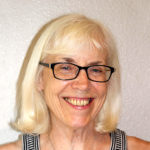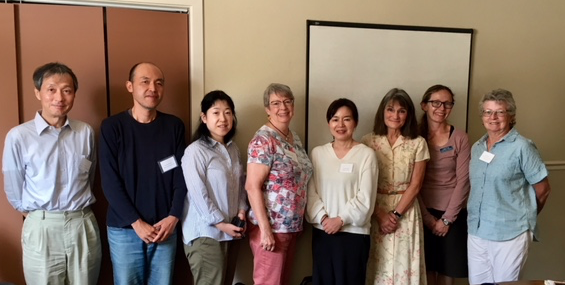Sharing a Japanese Visit: Two Perspectives
By Sharon Harrigfeld and Julie Hoefnagels, Board of Directors
Last fall, a small group of Alliance staff, members, and board members had the privilege of welcoming a four-member delegation from Tokai-Mura, Japan to Boise. Japan’s nuclear industry started Tokai-Mura in the 1950s. As board members, we offer our individual perspectives to share insights into that meeting.

All four members of the delegation have been active on Fukushima nuclear disaster issues, writing papers and books, making statements at trials to support victims in the court, and leading a non-profit organization to support evacuees from Fukushima.
Tokai -Mura, the sister town to Idaho Falls, is twelve miles from Ibaraki University (where one of the delegation members is on the faculty). The Japan Atomic Energy Agency at Tokai-Mura has just started decommissioning the reprocessing plant. The delegation is hoping to engage more public involvement and encourage information disclosure from the government and Japan Atomic Energy. Members of the delegation wanted to learn from the Alliance’s experiences.
Kerry Cooke, Rinda Just, and Julie Hoefnagels answered questions regarding history, changes in the research, involvement in advocacy, risk associated with transfer of nuclear waste and economic development. Leigh Ford not only added to the discussion but graciously ensured everyone was welcomed and comfortable. They ended their short visit by looking at the rich history in our office.
I am a beginner in this field, and I am fortunate to be among masters who have provided a path for me to follow. For me the experience of watching like-minded colleagues discuss the importance of nuclear advocacy filled me with gratitude to be involved with the Alliance and all that it represents. I look forward to learning from all of you. Please don’t hesitate to share with me reading materials that will assist me on this new journey.

Julie Hoefnagles, Board
Julie: Meeting with this delegation was a very enriching experience. It was a window into reality to get to speak with people who have lived in such close proximity to one of the worst nuclear disasters in history. I felt honored by their visit and humbled by the fact that there were things they felt they could learn from the Snake River Alliance.
In answering the delegation’s questions about the Alliance’s organization and accomplishments, we pointed to the grassroots nature of the Alliance, and how the hard work, inventiveness and tenacity of its staff and members over the years have had a major effect in changing the course of Idaho’s nuclear history for the better. We have worked to develop healthy and respectful relationships with political leaders and with leaders at Idaho National Laboratory to accomplish these goals.
It was interesting to learn about the similarities and differences between the US and Japanese “freedom of information” systems. Both countries have such a system to guarantee transparency in the public sphere and, although it seems that the US is further ahead in terms of ease of implementation, we have opportunities to learn from each other. Both countries, of course, are grappling with the problems of nuclear waste cleanup and disposal, which are part and parcel of this means of energy production. In this context, we were able to point to Idaho’s unique agreement with the Department of Energy (the 1995 Settlement Agreement) which provides procedures for dealing with waste and sets limits on the amount and type of waste that can be brought into the state.
I felt that our meeting was all too brief, and hope that we will be able to mutually support each other in facing future challenges presented by nuclear energy production.


